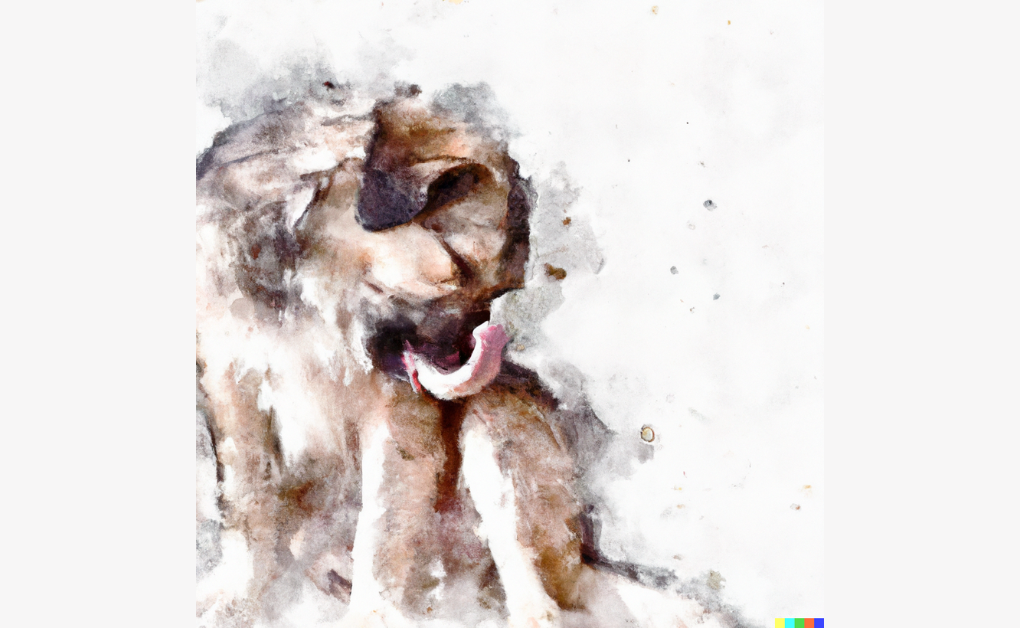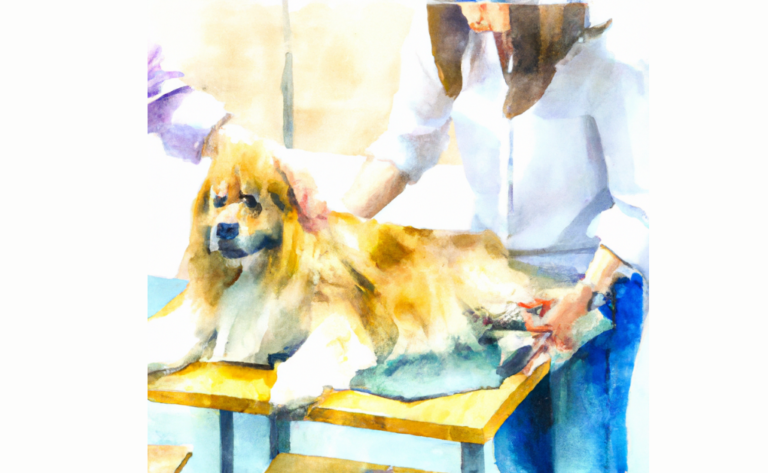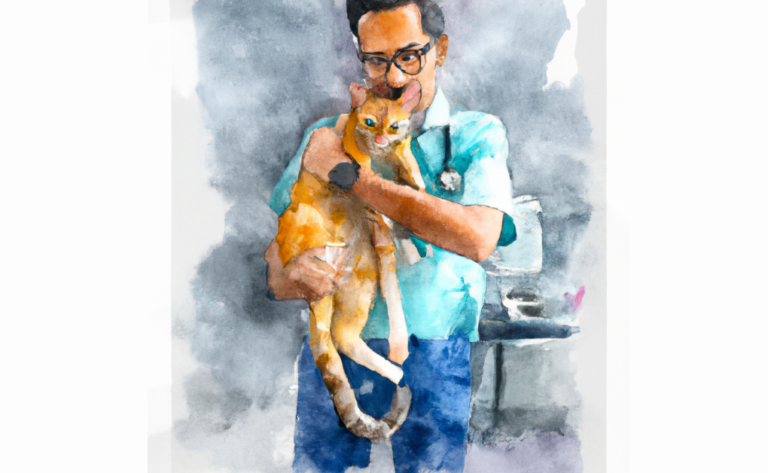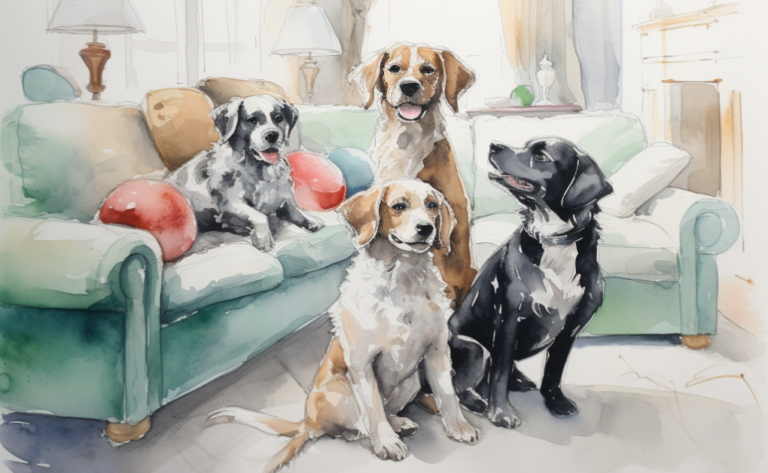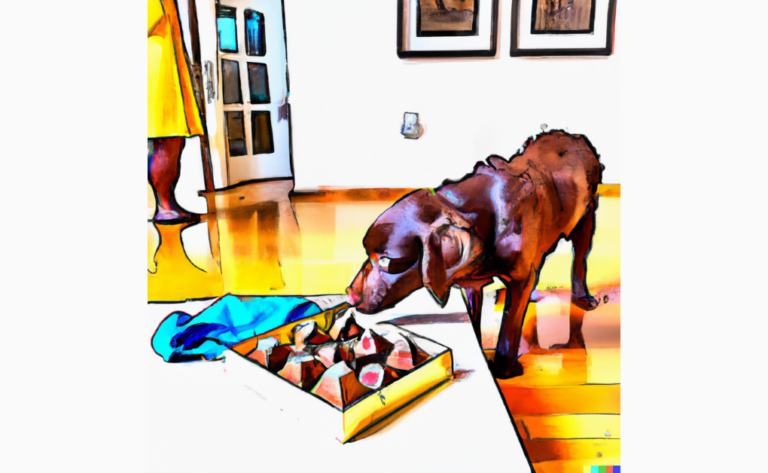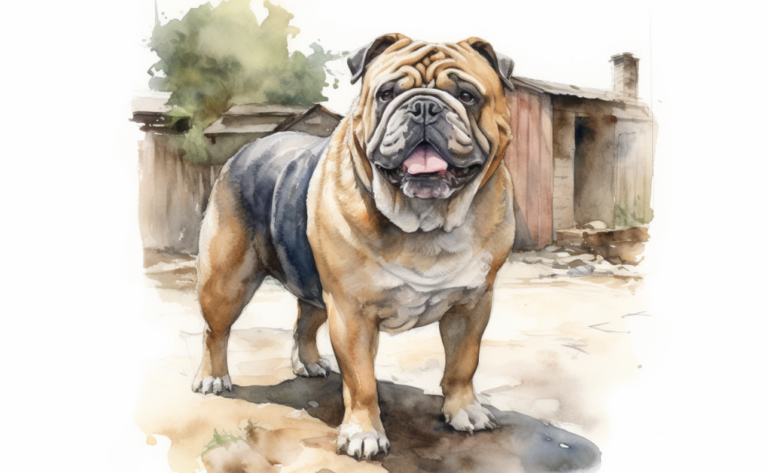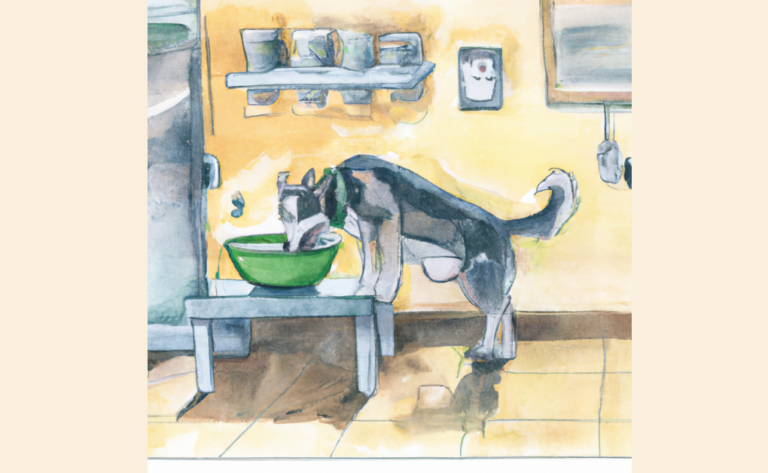Why Does my Dog Lick So Much?
Introduction
When Jenny noticed her lovable Golden Retriever, Bailey, had developed an excessive licking habit, she couldn’t help but feel concerned. Was it just an innocent quirk, or was there something more serious at play? Determined to get to the bottom of this mystery, Jenny embarked on a quest to uncover the reasons behind Bailey’s relentless licking.
Licking is one of the most common behaviors seen among dogs. They often use it to communicate with each other, explore the world around them, and even find out what food items are safe to eat. Puppies and adult dogs still use it to communicate and learn about objects and tastes. But what does it mean? Is it simply a way to express affection? Or is there a deeper meaning behind every lick?
There are several behavioral and medical reasons why dogs lick excessively.
6 Natural Reasons Why Dogs Lick Excessively
There are many reasons why dogs lick themselves. They might be trying to clean themselves, cool off, or relax. But sometimes, it could mean something else entirely. Here are six common reasons why dogs lick themselves.
1. Anxiety and Boredom
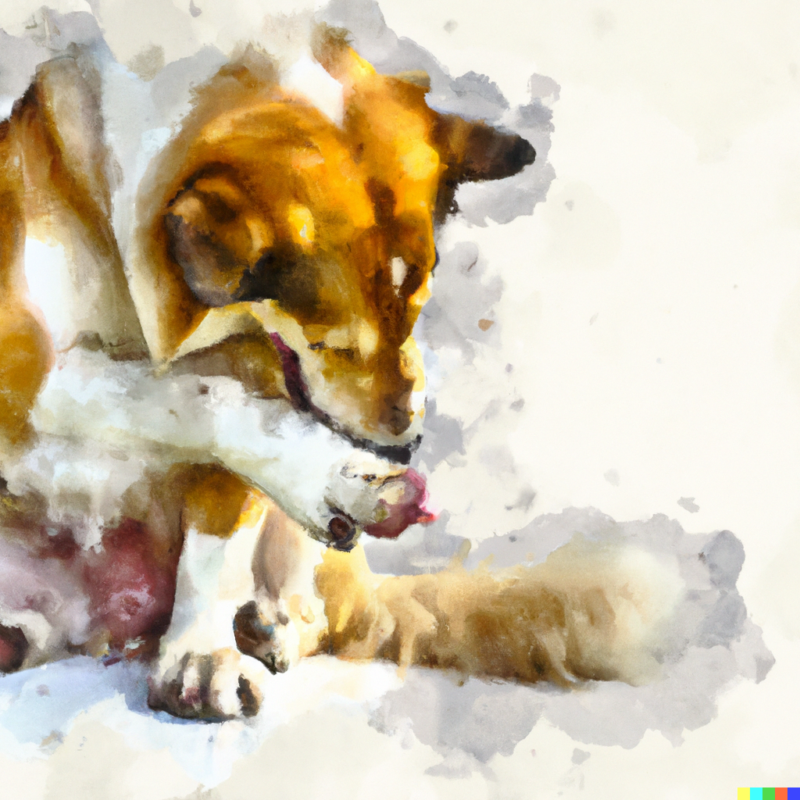
Licking is an instinctive behavior that helps dogs relieve stress and tension. However, excessive licking can indicate boredom or anxiety.
To help him feel better, try giving him a treat when he stops licking. This will provide him with a sense of accomplishment and reward his efforts.
Also, play games with your pup. You might even consider taking him out for a walk or playtime session. Play fetch, tug-of-war, hide-and-seek, etc., and encourage him to participate. These activities will keep him busy and distracted.
Finally, consider adding a chew toy to your home. Chew toys are great distractions for dogs who are bored or anxious.
2. Sign of Affection for Someone or Something
Licking is often seen as an act of affection between animals and people. However, it can become problematic if it becomes excessive or repetitive. Obsessive licking can be a sign that your dog needs attention and affection. For example, when owners were humming or speaking, their dogs were likelier to lick and nuzzle them than when they pretended to cry, according to a study published in 2012.
If you notice that your dog is constantly licking himself, it’s time to pay closer attention to how he feels about you. If he seems stressed or unhappy, it’s likely because he needs more love and affection from you. However, there are several things you can do to help.
- Make sure they aren’t suffering from pain or discomfort. Check their ears, eyes, teeth, gums, paws, etc., for signs of injury. You can also ask your veterinarian about any medical conditions causing the problem.
- Try changing up where they lick. For example, try moving them around the room or even outside. Some dogs like to lick certain spots on furniture or walls. Others enjoy licking objects such as toys or blankets.
- If none of those work, consider giving them something else to do. For example, a favorite toy or treat might distract them enough to keep them busy while you figure out what’s wrong.
- If nothing works, talk to your vet about how to best address the issue. They’ll likely recommend medication or topical treatment to reduce itching or irritation.
3. Seeking Praise and Attention
We are constantly being told how important it is to make eye contact, nod, say hi, etc., when meeting people. But do you know why dogs lick us? They want to tell us something. And there are some things they are trying to convey.
The most common thing I see is that dogs are seeking attention. If you look closely at the video above, you’ll notice that the dog licks his lips, ears, nose, tail, feet, and even his belly button. He wants to let you know he’s happy to see you.
Another reason dogs lick us is to say “hello.” This is especially true if you walk down the street with your dog. You might think that because your dog is wagging her tail and looking up at you, she’s telling you she loves you. She isn’t. What she’s trying to say to you is, “Hello!”
A third reason dogs lick us is that they want to show affection. A lot of times, dogs will give kisses to people they like. So if you’re having trouble getting your dog to stop licking you, try kissing him.
If you don’t understand what your dog is trying to tell you, ask yourself, “What am I doing?” Then adjust accordingly.
4. Habit
Licking is an instinctive behavior that many dogs exhibit. Some dogs develop a compressive habit of licking things. Kenneling your dog during periods when you’re away can help prevent destructive behaviors. Behavior problems can cause stress for both people and animals, and there are many ways to help pets overcome behavioral issues. A good trainer will work closely with you to find solutions.
5. Liking the Taste
The dog’s tongue is covered in tiny hairs sensitive enough to detect our scent. So when it sees something tasty, it sticks out its tongue and licks it. Dogs do much better than cats when it comes to detecting odors. Cats rely on their sense of hearing to find food, while dogs use their noses and ears to sniff food.
In addition to being able to detect smells, dogs also have a keen sense of sight. Their eyesight is about 20 times sharper than ours. And because they see things from such close range, they can quickly tell how big objects are. For instance, a cat might think a piece of furniture is too large to fit into its mouth. But a dog could reach over and grab it.
6. Hunger or Thirst
If you’re wondering why your dog licks his lips constantly, there are several reasons. The most common cause is hunger. Dogs lick their lips because they’re thirsty. They may be licking them because they’re cold, too. Or dogs may also be licking because they feel like it.
Dogs lick their lips when hungry because they need water to stay hydrated. And since dogs drink through their mouths, they often lick their lips after drinking.
6 Medical Reasons Why Dogs are Excessively Licking
Licking is a symptom of several different conditions. Some common causes include food allergies, environmental allergens, parasites, and other health issues. Contact your veterinarian immediately if you suspect your pet is licking itself because it suffers from one of these conditions.
1. Allergies
Licking is a symptom of several different conditions. Some common causes include food allergies, environmental allergens, parasites, and other health issues. This often happens in springtime when pollen counts and highest. If you suspect that your pet is licking itself because it may be suffering from one of these conditions, contact your veterinarian immediately.
- Pet Insurance Will Cover Most Costs Associated With Treating Your Dog’s Allergy
If your dog suffers from an allergy, there are many ways to treat the problem. You can use antihistamines, steroids, antibiotics, and even immunotherapy to help alleviate symptoms. However, some treatments have side effects, such as weight gain, lethargy, vomiting, diarrhea, and loss of appetite. Fortunately, pet insurance policies typically cover most of these costs.
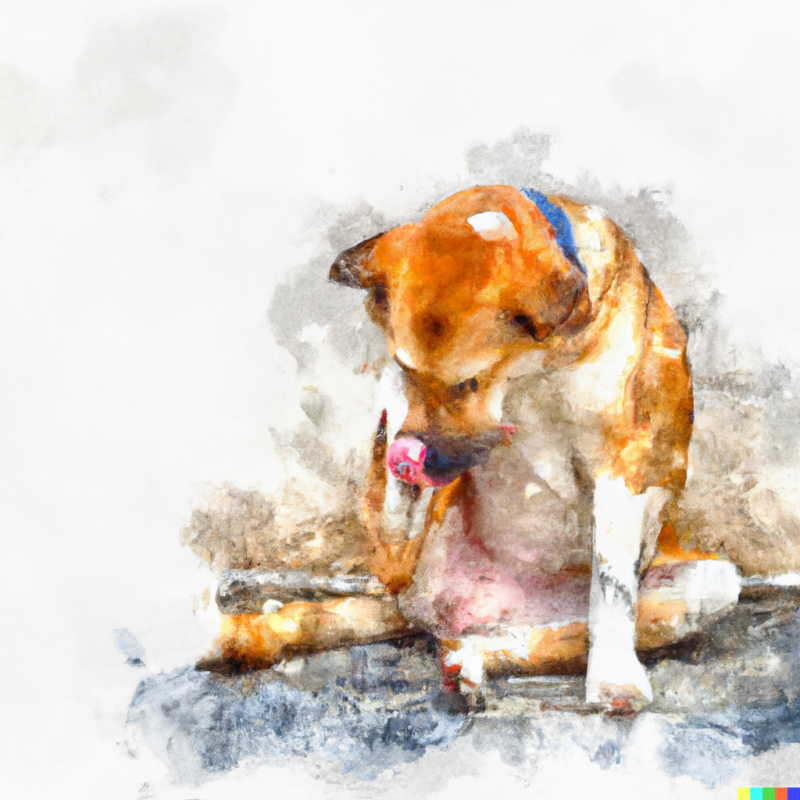
- Get Help From A Trained Veterinary Technician
Veterinary technicians are trained to identify and diagnose diseases and disorders in pets. They can advise on preventing future problems and what treatment options are available. In addition, they can administer medications and perform procedures like blood draws injections, and surgeries.
- Consider Using An Epinephrine Autoinjector
An epinephrine autoinjector is a device to deliver emergency medication to dogs suffering from severe reactions to specific allergens. This injection has a dose of epinephrine directly into the bloodstream, where it helps regulate breathing and heart function.
2. Skin Problems
Skin conditions are usually associated with some underlying medical problem. For example, eczema is often caused by allergies, while psoriasis is linked to immune system disorders. So if you notice your dog licking his paws excessively, it could indicate one of several different skin issues. Some of the most common include:
- Allergies – This is the most common cause of excessive licking. Your pet might lick because he feels like he’s getting something stuck in his paw. He might also lick because he wants to clean himself off.
- Fleas – Fleas are tiny parasites feed on dead skin cells and cause itching. They tend to live in warm environments such as basements and garages.
- Parasites – These microscopic creatures can burrow into your dog’s skin and irritate it.
- Scratching – A lot of dogs scratch themselves because they feel uncomfortable. Sometimes, though, they do it to relieve stress.
- Warts – These growths occur when the body produces too much keratin, a protein found in hair, nails, and hooves.
- Yeast infections – These fungal infections are prevalent in dogs. They can cause redness, swelling, and pain around the affected area.
3. Infections
Dogs lick because they’re dogs. They’re not trying to be mean; they want to play. But sometimes, when they lick too hard, they cause infections.
When your dog licks his lips, he may pick up bacteria from his mouth. This bacteria can enter through cuts or sores on his tongue, gums, or nose. Once inside, this bacteria can travel down his throat and infect his stomach lining.
If your dog develops an infection, he may experience vomiting, diarrhea, fever, lethargy, loss of appetite, and pain. He may also lose weight.
To prevent your dog from licking himself, try these tips:
- Keep him away from areas where he could lick himself (such as carpets, furniture, and walls).
- Use a muzzle whenever he needs to go outside.
- Make sure he drinks plenty of water.
- Clean any wounds or sores on his body.
- Wash his paws regularly.
- Bathe him often.
- Brush his teeth daily.
- Check his ears frequently.
4. Underlying Pain
Licking is often associated with pleasure. But it can also be a sign of discomfort. If you notice your dog licking excessively, ask yourself why he’s doing it. Is there something painful happening in his life? Has he been injured recently? Does he seem anxious or depressed? These are signs that your pet could be suffering from underlying pain.
If your dog licks frequently, you might consider taking him to the veterinarian. A vet can examine your dog and determine whether there’s anything wrong. Then, he can give your dog medication to relieve pain and help him feel better.
5. Obsessive Compulsive Disorder (OCD)
Obsessions and compulsions characterize obsessive-compulsive disorder (OCD). People with OCD experience unwanted thoughts or images called obsessions and try to neutralize those thoughts by performing rituals such as hand washing, checking locks, counting, repeating prayers, etc. These behaviors are known as compulsions.
Dogs suffer from OCD too. They’re unaware of it because they don’t understand human language. But dogs still feel emotions, including anxiety, fear, stress, happiness, sadness, anger, jealousy, and loneliness.
A dog may lick himself excessively when feeling stressed, anxious, or fearful. This behavior is called self-grooming.
Self-grooming is standard for most dogs. However, some dogs groom themselves excessively, sometimes compulsively. These dogs often spend hours licking themselves, scratching their heads, ears, paws, and tails.
Some dogs excessively groom themselves when bored, lonely, or depressed. Others groom themselves excessively when they’ve been given a bad haircut. Still, others groom themselves excessively when they sense danger.
If your dog licks himself excessively, there are several things you can try to help him stop. First, give him plenty of exercise and playtime. Second, offer him treats whenever he stops grooming. Third, teach him to use his voice to communicate distress. Finally, consult a veterinarian who specializes in canine health issues.
6. Gastrointestinal or Stomach Issues
Licking is often associated with digestion, especially if it happens excessively. If you notice your dog licking himself excessively, he might be experiencing some gastrointestinal problems. This can be caused by eating something that doesn’t agree with him, ingesting too many toxins, or having an infection.
If your dog licks his paws, mouth, or eyes, he could be suffering from dry skin. Dry skin is widespread among dogs and can cause itching, irritation, and even infections. You can help prevent this by bathing your pet every week.
A veterinarian usually diagnoses gastrointestinal disorders. Then, they are generally treated with drugs, diets, or surgery.
Frequently Asked Questions
Disclaimer: The information provided on this veterinary website is intended for general educational purposes only and should not be considered as a substitute for professional veterinary advice, diagnosis, or treatment. Always consult a licensed veterinarian for any concerns or questions regarding the health and well-being of your pet. This website does not claim to cover every possible situation or provide exhaustive knowledge on the subjects presented. The owners and contributors of this website are not responsible for any harm or loss that may result from the use or misuse of the information provided herein.

